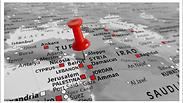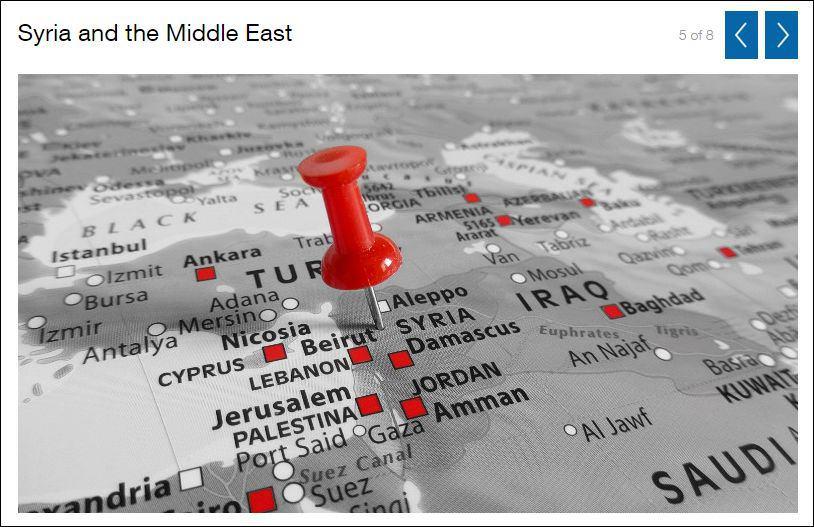
The case was first reported by media watchdog Honest Reporting, whose managing editor, Simon Plosker, said, "At a time when the state’s very legitimacy is being called into question by vicious anti-Israel extremists, any message that Israel does not belong in the Middle East plays into this false narrative and feeds those like the Iranian ayatollahs who wish to see Israel erased from the map."
According to Honest Reporting, CNN has since removed the map in question and replaced it with an image of the aftermath of a Syrian airstrike in Aleppo.
The map incident is not CNN's first run in with Israel. Veteran CNN anchor Jim Clancy was forced to resign in January of this year after a series of anti-Israel tweets. Clancy posted a tweet claiming that the caricature of Muhammad published by the French magazine Charlie Hebdo did not mock the Muslim prophet. "They mocked how the COWARDS tried to distort his word. Pay attention,” he wrote.
After his version of events was challenged by Oren Kessler, a deputy director of research at the Foundation for Defense of Democracies, Clancy tweeted, “Hasbara?,” in response, implying that Kessler was engaging in public diplomacy on Israel's behalf.
“These accounts are part of a campaign to do PR for Israel," Clancy wrote, adding that a “pro-Israel voice" was attempting to "convince us that cartoonists were really anti-Muslim and that’s why they were attacked. FALSE," he added.
In his resignation statement, the CNN anchor did not mention the reason for his departure. He posted the following message: "After nearly 34 years with Cable News Network, the time has come to say farewell! It has been my honor to work alongside all of you for all of these years."
The CNN article was not the first time Israel had been omitted form a map. HarperCollins, one of the largest publishers in the world, has marketed English-language atlases that fail to include Israel to schools in the Middle East.
Unlike absent Israel, the volume includes a map identifying Gaza and the West Bank. Collins Bartholomew, the map company in charge of printing, said including Israel was "unacceptable" for customs in the Persian Gulf.
A company spokesperson later said HarperCollins "regretted" the omission and ended the sale of the HarperCollins Middle East Atlas, promising to destroy remaining copies of the offending map collection.




















